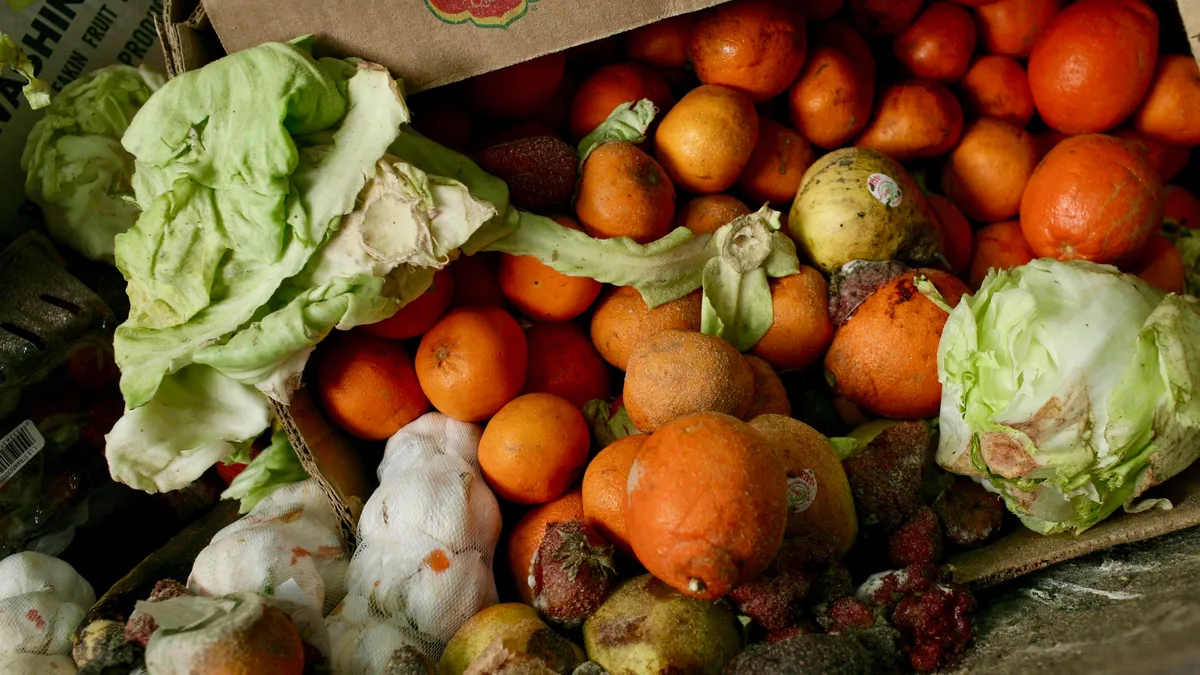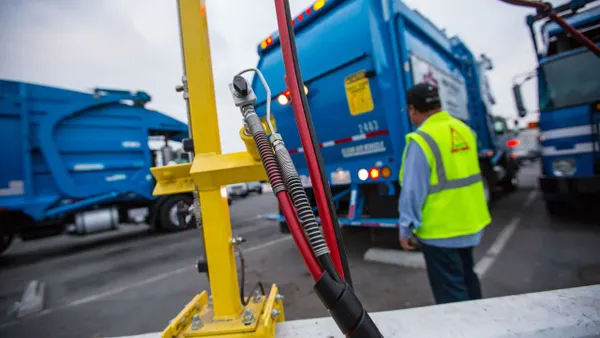Two bills meant to provide billions of dollars in funding for food waste prevention efforts and support composting projects have been reintroduced in Congress.
The Zero Food Waste Act would offer U.S. EPA grants over ten years for projects that divert or prevent food waste or gather data about food waste practices. The Cultivating Organic Matter through the Promotion Of Sustainable Techniques Act (COMPOST Act) would offer grants and loans for both large-scale and smaller-scale composting infrastructure.
Reps. Julia Brownley, D-Calif., Chellie Pingree, D-Maine, and Ann McLane Kuster, D-N.H., sponsor the bills in the House. Sens. Cory Booker, D-N.J., and Tina Smith, D-Minn., sponsor the bills in the Senate.
Supporters say it can be tough for smaller entities, like local governments and nonprofits, to scale up new projects without meaningful funding. Federal grants and loans can “support detailed planning and the robust infrastructure necessary to reduce food waste,” said Yvette Cabrera, food waste director for the Natural Resources Defense Council, in a statement. Other supporters include ReFED and the World Wildlife Fund.
Both bills were last introduced in 2021 but were not able to move forward through Congress. In 2021, the COMPOST Act received support from a coalition of over 60 groups, including Californians Against Waste, packaging companies like Amcor and Dart Container, and groups like the U.S. Composting Council and Biodegradable Products Institute.
Though few recycling and waste bills passed Congress last year, President Joe Biden did sign the Food Donation Improvement Act, a bill to expand food recovery efforts and reduce food waste by making it easier for businesses and organizations to donate food.
Booker said more could be done to address the “economic, environmental, and public health costs of our country’s food waste problem.” The COMPOST and Zero Food Waste bills will help the country invest in more solutions that prevent food waste “or divert it to hungry Americans, or if there’s no other option, ensure that food is composted instead of landfilled,” he said in a statement.
What’s in the Zero Food Waste bill?
- The bill would provide $650 million per year in EPA grants through fiscal year 2031 for programs or infrastructure. The goal is to reduce food waste by 50% by 2030, down from 2010 numbers.
- Grants could be used for a variety of programs like measuring or collecting data on food waste, building anaerobic digestion projects or rescuing surplus food for places like food banks. Grants could also be used for projects to divert or restrict food waste from landfills and incinerators, or develop markets and demand for compost products.
- State, local, tribal, and territorial governments and nonprofits would be eligible for the grants. The bill gives priority to proposals in communities of color, low-income communities, or tribal communities affected by “adverse human health or environmental effects.”
What’s in the COMPOST Act?
- The bill would provide $200 million a year through 2031 in grants and loan guarantees for composting infrastructure projects. Applicants could use grants and loans for large-scale composting facilities as well as smaller projects on farms, in communities or at home.
- Eligible projects could include compost collection initiatives, market development strategies or projects that improve existing systems. The money could be used to help fund project permitting, planning and construction, as well as purchases of most types of equipment — except depackaging equipment.
- The bill would also designate compost generation and use as an approved practice for U.S. Department of Agriculture conservation programs.
- State and local governments, tribes, nonprofits, higher education institutions and farmers would be eligible. The bill gives priority to grant proposals that are led by people of color; or proposals that are inclusive and provide living wages, serve disadvantaged and low-income communities, or incorporate environmental justice principles.











